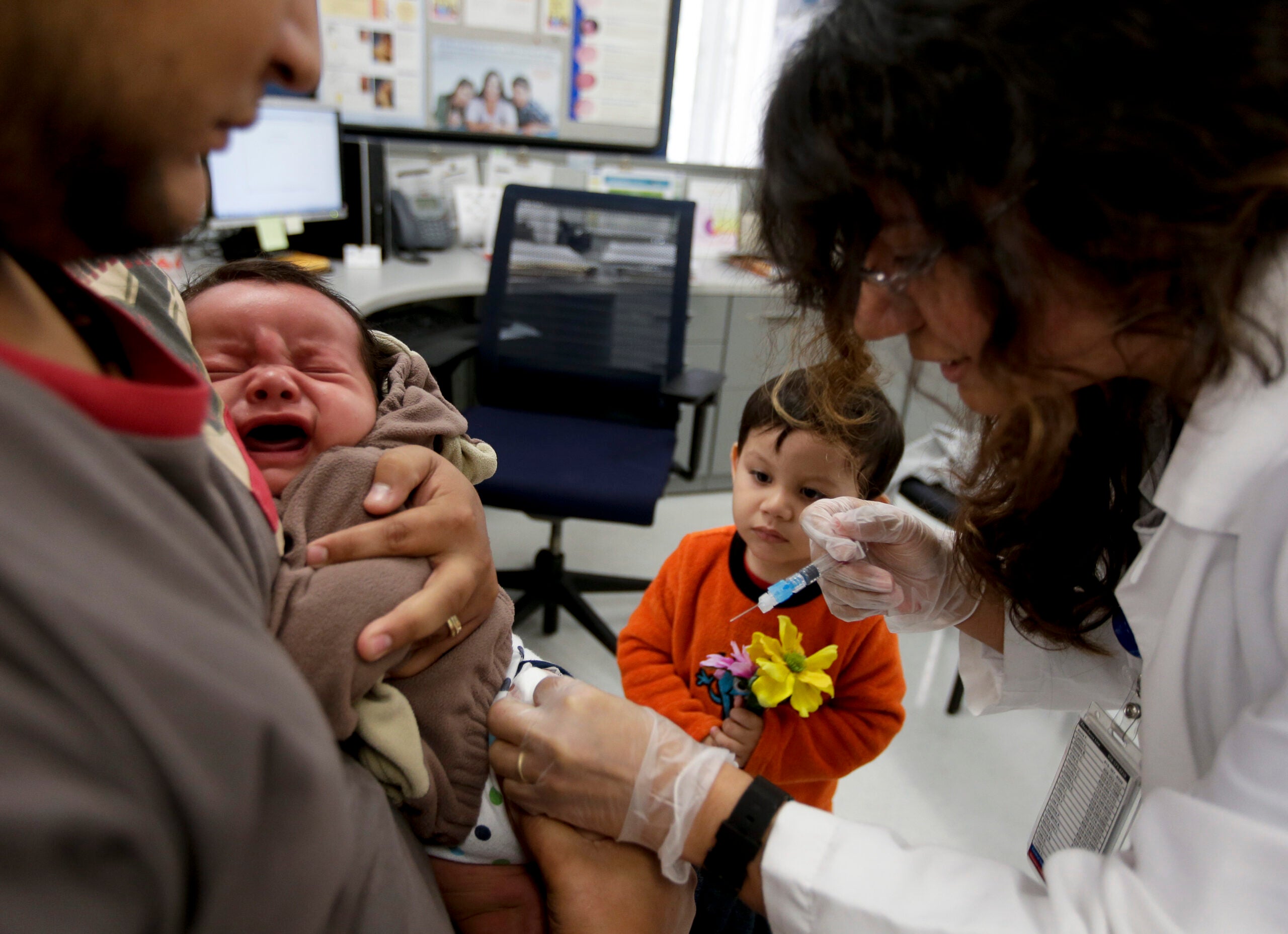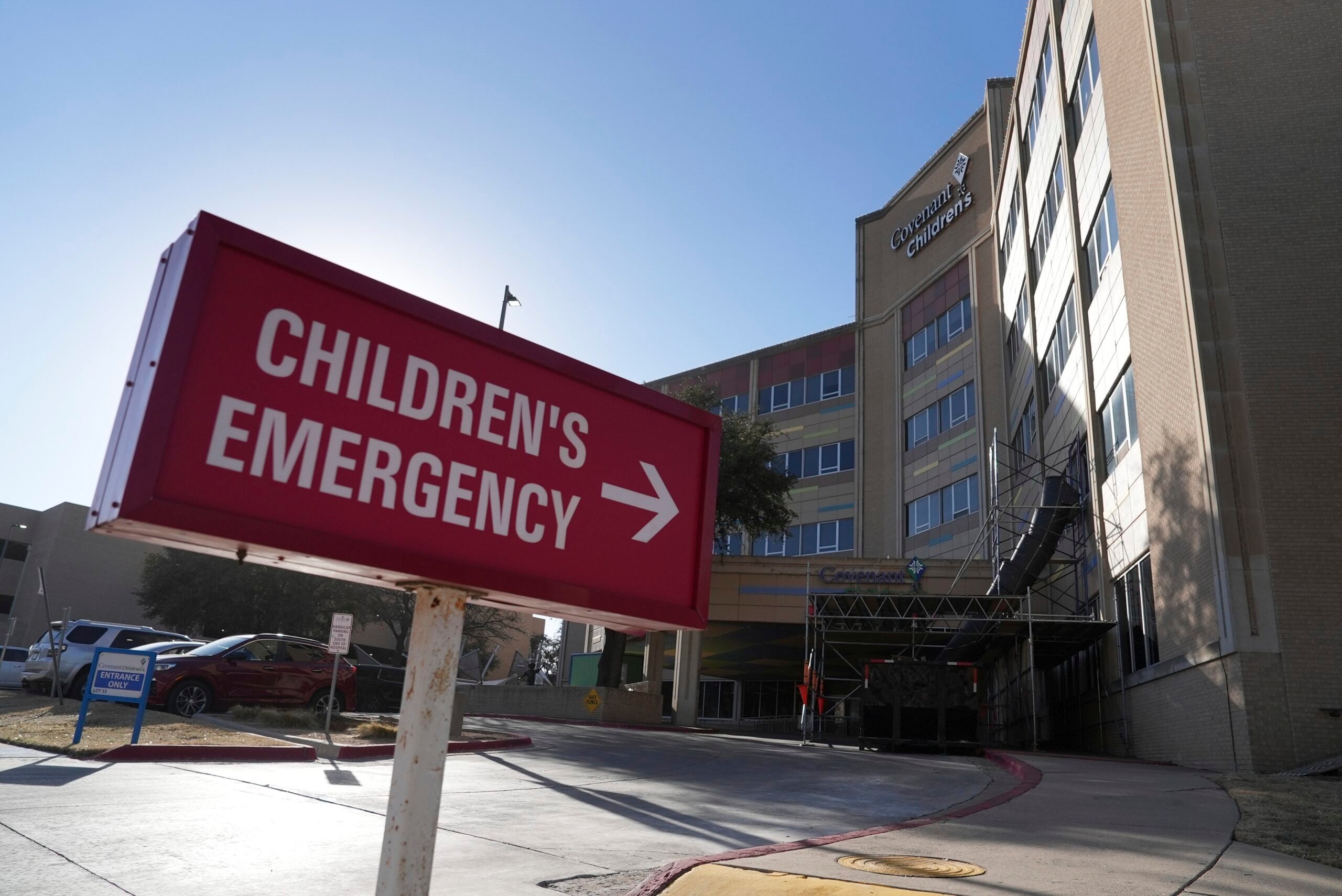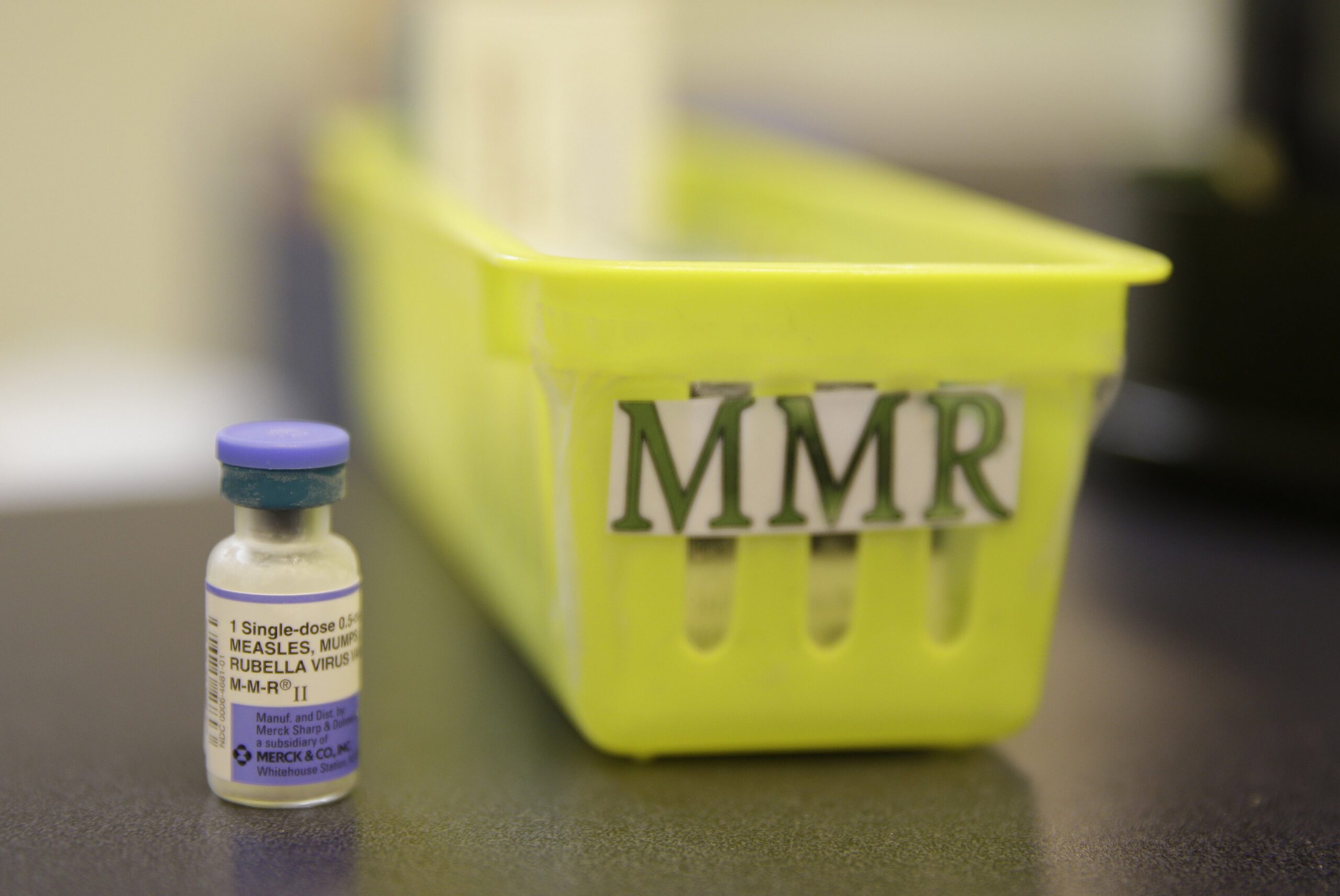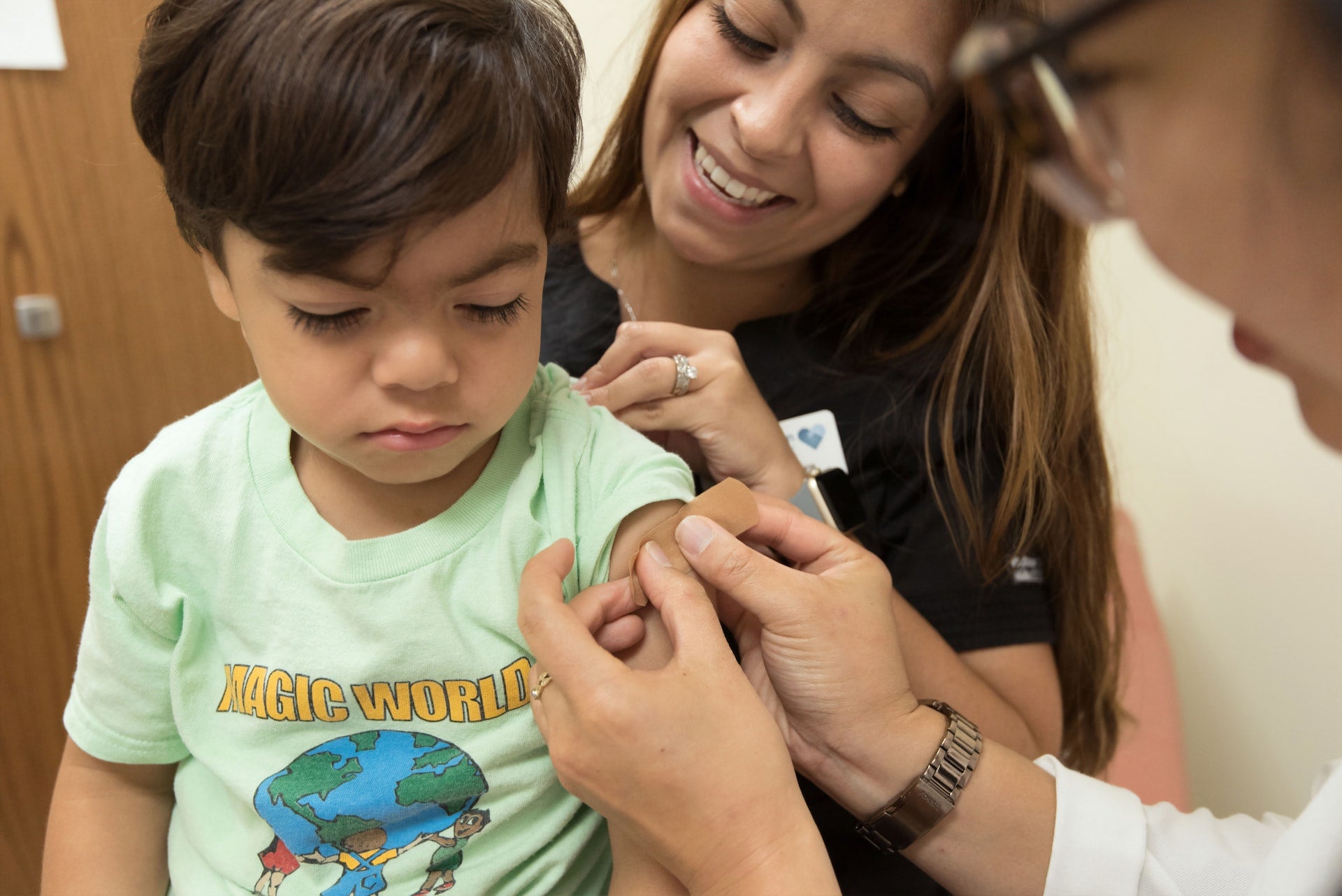State health officials are warning Wisconsinites of a significant increase in cases of whooping cough.
Data from the state Department of Health Services shows there have been 625 confirmed cases of whooping cough as of Sept. 13. That’s more than 10 times the number of cases reported in Wisconsin last year.
Whooping cough, known formally as pertussis, is a respiratory illness caused by a bacteria. The disease is most severe in infants and young children and is characterized by prolonged coughing that leaves patients gasping for air.
Stay informed on the latest news
Sign up for WPR’s email newsletter.
DHS reports that 28 cases have been in infants this year, six of whom have been hospitalized. There have been no deaths reported.
Public health officials in Brown County and Dane County have already sounded the alarm this year about high numbers of whooping cough cases. Now, DHS reports two-thirds of the counties in the state have reported at least one case. It follows a national increase in case numbers this year.
Dr. Stephanie Schauer, manager of the Wisconsin Immunization program at DHS, said this year’s numbers are similar to years before the COVID-19 pandemic. Public health measures during the pandemic likely helped the disease decline in numbers. But Schauer said prior to 2020, whooping cough would flare up every few years.
“I think we’re in a high year,” she said. “We were a bit overdue because of that lull from the pandemic.”
In 2016, Wisconsin had 943 cases of whooping cough, according to Schauer, and there were over 4,600 cases reported in 2012.
She said the recent years of low cases means there are more people who are susceptible to the disease. The pertussis vaccine, called Tdap for older children and adults and DTaP for young children, protects against severe disease. But Schauer said it doesn’t prevent infection permanently.
The Centers for Disease Control and Prevention recommends that in addition to the typical vaccine schedule for babies and young children, pre-teens should receive the vaccine between the ages of 11 and 12 to boost immunity. Adults should receive a booster every 10 years.
Another factor that could be contributing to more spread is that people remain infectious for a long time. Schauer said people can spread the disease a week before coughing begins and can still infect others up to 21 days after symptoms start.
“Nearly half of our cases are in the 11 to 18 year old age group,” she said. “I think it’s just from, unfortunately, places and times where large numbers of individuals come together for long periods of time, which happens to be schools.”
Schauer said it’s hard to predict whether the case count will continue to climb or if the state is reaching a peak in disease spread. She said if spread continues in schools, it may take more time for cases to subside.
She encouraged children and adults to make sure they’re up to date on their vaccines, especially if they’re pregnant or in contact with infants. The CDC reports receiving the vaccine during pregnancy protects nine in 10 babies from being hospitalized.
“Vaccine preventable diseases are really kept at bay by us continuing to keep up community immunity,” she said. “Whether we’re talking pertussis or measles, these diseases don’t go away. They just aren’t around as much when we have highly vaccinated or highly protected communities.”
Wisconsinites can check their records through their health care provider or through the Wisconsin Immunization Registry.
Wisconsin Public Radio, © Copyright 2025, Board of Regents of the University of Wisconsin System and Wisconsin Educational Communications Board.



